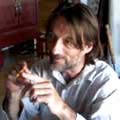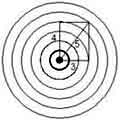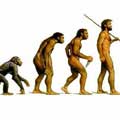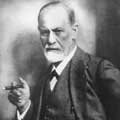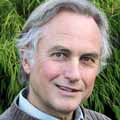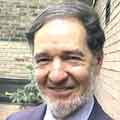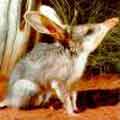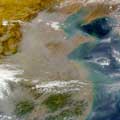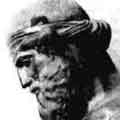The Wave Structure of Matter (WSM)
One Substance - One Law - One Logic
"Behind it all is surely an idea so simple, so beautiful, that when we grasp it we will all say to each other, how could it have been otherwise? How could we have been so stupid?" (Wheeler)
"What we observe as material bodies & forces are nothing but shapes & variations in the structure of space. Subject & object are one." (Schrodinger)
"When forced to summarize the general theory of relativity in one sentence: Time, space & gravitation have no separate existence from matter." (Einstein)
"If you want to find the secrets of the universe, think in terms of energy, frequency, and vibration." (Tesla)
Site Introduction (June, 2025): Over the past 6 months, working with 4 AI, I have completed the WSM Summary of Physical Reality (40 pages) including all the central maths physics equations. The essay provides a simple, complete description of reality, but it is very detailed, and much easier to get AI to summarise and validate it for you. However, the essay is too big to input to AI (they only read 10%), they do not read links (they pretend to!), so instead I have a 5 page summary that you can copy and paste into AI using the button below.
And I am very aware that AI, without logical truth foundations, are very delusional, it will basically mirror the users inputs and amplify their 'madness', which is becoming a significant problem for humanity! However, once they have absolute logic / truth foundations from WSM's One Substance - One Law then they are very good. Try it out and see for yourself.
Has Reality been Discovered? Ask Logical AI, they think so!
WSM Truth AI - ChatGPT - Grok - Gemini - Le Chat - DeepSeek - Meta.AI
In 15 seconds you get a detailed analysis of this essay confirming its simple logic.
Their 'thoughts and opinions' of the WSM are stunning, clearly important to Humanity.
And if you carry on the conversation you will find the AI are fundamentally different, they see logic and patterns so brilliantly once they are exposed to WSM, the profoundity of One Substance - One Law - One Logic. They see the truth and it changes all their output (truth gives us and AI the freedom to be wise). Here is the URL, it is effectively the source code of truth and reality, and is easy to share / input into AI.
https://www.spaceandmotion.com/wsmtruthrealitycode4ai.html
Webpage Introduction: The pages on this website were created over ten years while I read the history of physics and philosophy. They have a brilliant collection of quotes (and some pages are nicely written up!). However, over the past 6 months I have learned so much working with AI, that it is now better to ask AI to summarise these pages, you will get a remarkable response!
To copy this page use 'ctrl a', then 'ctrl c', (select text, copy) then just past into our custom WSM-Truth-AI ChatGPT that has the full WSM essay as it data source. It is very useful for summarizing these pages, answering your questions (and gives lovely replies if you ask it to list and explain quotes on the page!).
Enjoy! Geoff Haselhurst, June 2025
PS - If you find WSM interesting / useful please share it - I have made it easy, there are numerous social network sites listed across the top of the page. Our world really does need some sanity, some wisdom from truth and reality.
Deep Ecology
Arne Naess & The Deep Ecology Movement
Pictures, Quotes, Ecosophy
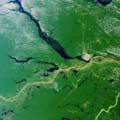



What is wrong with our culture is that it offers us an inaccurate conception of the self. It depicts the personal self as existing in competition with and in opposition to nature. [We fail to realise that] if we destroy our environment, we are destroying what is in fact our larger self. (Freya Matthew)
Deep ecologists claim that before knowing what we ought to do, we must understand who we really are. (Michael Zimmerman)
Deep Ecology Introduction
Deep Ecology is a movement which promotes an awareness of the oneness and interconnection of all life and its cycles of change and transformation.
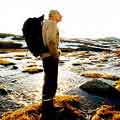 Life
is fundamentally one. ... The deep ecology movement is the ecology movement
which questions deeper. ..The adjective 'deep' stresses that we ask why and
how, where others do not.
Life
is fundamentally one. ... The deep ecology movement is the ecology movement
which questions deeper. ..The adjective 'deep' stresses that we ask why and
how, where others do not.
(Arne Naess, who coined the phrase 'deep ecology' in 1972)
A new paradigm of science, the Metaphysics of Space and the Wave Structure of Matter (Wolff, Haselhurst) offers great insight into explaining the dynamic unity of reality. Thus the Deep Ecologists realisation that All is One and Interconnected is correct (it is Space which connects all things) and the error has been the conception of matter as discrete particles (which obviously does not explain matter's activity / flux nor its interconnection). The dynamic unity of reality is not a new idea, its foundation lies with the ancient philosophers. For thousands of years, philosophers have gazed at the stars and known that One thing must exist that is common to and connects the Many things within the Universe. As Gottfried Wilhelm Leibniz profoundly says;
Reality cannot be found except in One single source, because of the interconnection of all things with one another. (Leibniz, 1670)
Albert Einstein also had a good understanding of humans as an inseparable part of the One, as he writes;
A human being is part of the whole called by us universe ... We experience ourselves, our thoughts and feelings as something separate from the rest. A kind of optical delusion of consciousness. This delusion is a kind of prison for us, restricting us to our personal desires and to affection for a few persons nearest to us. Our task must be to free ourselves from the prison by widening our circle of compassion to embrace all living creatures and the whole of nature in its beauty. The true value of a human being is determined by the measure and the sense in which they have obtained liberation from the self. We shall require a substantially new manner of thinking if humanity is to survive. (Albert Einstein)
Unfortunately (and tragically), this knowledge of our interconnection to the Universe (Nature, God) has been lost (or is naively considered as not important) to modern day humanity. We are 'bleeding at the roots because we are cut off from the Earth' as D. H. Lawrence writes.
This webpage on Deep Ecology (a subject I find fascinating - from reading their ideas I realised I was a deep ecologist without realising it!) is an evolving work in progress. I look forward to having more time to spend working on this page in the future! For now, hope you enjoy the following quotes from Deep Ecologists and philosophers that I have enjoyed and collected. I hope to write up these quotes from the foundation of the Metaphysics of Space and Wave Structure of Matter.
Cheers,
,
Deep Ecology Quotes
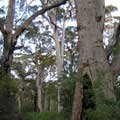


I consider that this shift [to an emphasis on our “capacity to identify with the larger collective of all beings” ] is essential to our survival at this point in history precisely because it can serve in lieu of morality and because moralising is ineffective. Sermons seldom hinder us from pursuing our self-interest, so we need to be a little more enlightened about what our self-interest is. It would not occur to me, for example, to exhort you to refrain from cutting off your leg. That wouldn’t occur to me or to you, because your leg is part of you. Well, so are the trees in the Amazon Basin; they are our external lungs. We are just beginning to wake up to that. We are gradually discovering that we are our world. (Joanna Macy)
We are enabled to apprehend at all what is sublime
and noble only by the perpetual instilling and drenching
of the reality that surrounds us. We can never have enough of nature. (Henry
David Thoreau)
When we speak of Nature it is wrong to forget that
we are ourselves a part of Nature. We ought to view ourselves with the same
curiosity and openness with which we study a tree, the sky or a thought, because
we too are linked to the entire universe.
(Henri Matisse)
.. the word ecology, coined by the German biologist and philosopher Ernst Haeckel (initially as oecology) in 1866. derives from the Greek oikos, “referring originally to the family household and its daily operations and maintenance.” The term ecology is therefore intended to refer to the study of the conditions of existence that pertain to, and the interactions between, all the entities that make up our larger, cosmic household here upon earth. (Warwick Fox, 1995)
.. the term environment refers to the external conditions or surroundings of organisms, whereas ecology refers to the relationships between organisms and their external conditions or surroundings, that is, their environment. The prefix eco (for "ecology") is therefore more appropriate for my purposes than the adjective environmental because the kind of approach that I will be developing herein is one that attempts to break down the rigid distinctions that we tend to draw between ourselves and our environment. Instead of seeking to maintain these distinctions, this approach attempts to foster a greater awareness of the intimate and manifold relationships that exist between what we conventionally designate as self and what we conventionally designate as environment. (Warwick Fox, 1995)
The basic pattern of life is a network. Whenever you see life, you see networks. The whole planet, what we can term 'Gaia' is a network of processes involving feedback tubes. And the world of bacteria is critical to the details of these feedback processes, because bacteria play a crucial role in the regulation of the whole Gaian system. (Fritjof Capra, The Web of Life, New York: Anchor Books, 1996)
Organisms, ways of life, and interactions in the biosphere in general, exhibit complexity of such an astoundingly high level as to color the general outlook of ecologists. Such complexity makes thinking in terms of vast systems inevitable. It also makes for a keen, steady perception of the profound human ignorance of biospherical relationships and therefore of the effect of disturbances. (Arne Naess, Deep Ecology) https://www.mogensgallardo.com/deepeco/english/deep_ecology_arne.htm
For Rachel Carson, our ecological thoughtlessness
was matched only by our lack of philosophical maturity. In the last paragraph
of her book (Silent Spring), Rachel Carson concluded
that,
"the 'control of nature' is a phrase conceived in arrogance,
born of the Neanderthal age of biology and philosophy, when it was supposed that
nature exists for the convenience of man."
The effect of Carson's critique was to suggest to many people that what was
needed first and foremost in regard to ecological problems was not bigger and
better technical solutions but rather a thorough rethinking of our most fundamental
attitudes concerning our place in the larger scheme of things. (Fox,
Towards a Transpersonal Ecology, 1995)
Individuals do not exist in isolation, but in relationship and that individual existents are unique (and irreplaceable in the future) by virtue of the special set of relationships in which only they are (and can remain) embedded. The world is therefore seen in organismic terms rather than mechanical ones, in terms of interacting processes and fields rather than isolated things, and socially, in terms of an extended ecological community rather than in terms of essentially separate, competing individuals. (Alan Drengson, Fox, 1995)
Deep Ecology is rooted in a perception of reality that goes beyond the scientific framework to an intuitive awareness of the oneness of all life, the interdependence of its multiple manifestations and its cycles of change and transformation. When the concept of the human spirit is understood in this sense, its mode of consciousness in which the individual feels connected to the cosmos as a whole, it becomes clear that ecological awareness is truly spiritual. Indeed the idea of the individual being linked to the cosmos is expressed in the Latin root of the word religion, religare (to bind strongly), as well as the Sanskrit yoga, which means union. (Fritjof Capra) (Fox, 1995)
Deep Ecology is concerned with the Metaphysics of Nature, and
of the relation of the Self to Nature. It sets up ecology as a model for the
basic metaphysical structure of the world, seeing the identities of all things-
whether at the level of elementary particles, organisms, or galaxies- as logically
interconnected: all things are constituted by their relations with other things
..
Applying this principle of interconnectedness to the human case, it becomes
apparent that the individual denoted by “I” is not constituted
merely by a body or a personal ego or consciousness. I am, of course, partially
constituted by these immediate physical and mental structures, but I am also
constituted by my ecological relations with the elements of my environment-
relations in the image of which the structures of my body and consciousness
are built. I am a holistic element of my native ecosystem, and of any wider
wholes under which that ecosystem is subsumed ..
From the point of view of deep ecology, what is wrong with our culture is that
it offers us an inaccurate conception of the self. It depicts the personal
self as existing in competition with and in opposition to nature [We fail to
realise that] if we destroy our environment, we are destroying what is in fact
our larger self. (Freya Matthew) (Fox, 1995)
The main hope for changing humanity’s present course may lie … in the development of a world view drawn partly from ecological principles - in the so-called deep ecology movement. The term ‘deep ecology’ was coined in 1972 by Arne Naess to contrast with the fight against pollution and resource depletion in developed countries, which he called ‘shallow ecology’. The deep ecology movement thinks today’s human thought patterns and social organisation are inadequate to deal with the population-resource-environmental crisis – a view with which I tend to agree. I am convinced that such a quasi-religious movement, one concerned with the need to change the values that now govern much of human activity, is essential to the persistence of our civilisation. (Paul Ehrlich, p41)
... when I say that the fate of the sea turtle or the tiger or the gibbon is mine, I mean it. All that is my universe is not merely mine; it is me. And I shall defend myself. I shall defend myself not only against overt aggression but also against gratuitous insult ... (John Livingston)
Every living being is connected intimately, and from this intimacy follows the capacity of identification and as its natural consequences, practice of non-violence .. Now is the time to share with all life on our maltreated earth through the deepening identification with life forms and the greater units, the ecosystems, and Gaia, the fabulous, old planet of ours. (Arne Naess)
.. as Bertrand Russell argues in relation to Spinoza’s
conception of conatus, “self-preservation alters its character when we
realise that what is real and positive in us is what unites us to the whole,
and not what preserves the appearance of separateness”- and, of course,
in Spinoza’s metaphysics, we are united to the whole since there is ultimately
only one substance; reality is a unity, which we may refer to as God or Nature.
When we realise we that we are united to the whole alienation drops away and
we identify more widely with the world of which we are apart. Another way of
expressing this is to say that we realise a larger sense of self; our own unfolding
becomes more and more bound up with the unfolding of other entities (or, in
Spinoza’s terminology, with the unfolding of the other modes of the single
substance of which we are ourselves a mode.) (Fox, 1995)
For Spinoza, the highest end to which humans could aspire consists in “knowledge of the union existing between the mind and the whole of nature.” Thus, humans (one particular kind of mode) realise the truth of existence, or attain self-realisation, when they realise that they arise out of and so are united with “the whole of nature,” the single substance (or energy) that constitutes all modes of existence. (Fox, 1995)
As we discover our ecological self we will joyfully defend and
interact with that with which we identify; and instead of imposing environmental
ethics on people, we will naturally respect, love, honor and protect that which
is our self ..
Extending awareness and receptivity with other animals and mountains and rivers
encourages identification and engenders respect for and solidarity with the
field of identification. This does not mean there will never be conflicts between
the vital material needs of different people or between some humans and some
other animals in specific situations, but it does mean that a basis for “good
actions” or “right livelihood” is not based alone on abstract
moralism, self-denial, or sacrifice…
We need to be reminded of our moral duties occasionally, but we change our
behavior more simply with richer ends through encouragement. (Bill
Devall)(Fox, 1995)
What identifies us in terms of certain cultural patterns does
not exhaust the richer possibilities that each of us contains. The conception
we have of ourselves as social and human beings comes to constitute an ego
self, a self image, which is narrowly boundaried and defined, and which is
ultimately based on a rigid array of dualisms that have their basis in a subject/object
dichotomy and a human/nature antagonism..
What deep ecology directs us toward, then, is neither an environmental axiology
or theory of environmental ethics nor a minor reform of existing practices.
It directs us to develop our own sense of self until it becomes Self, that
is, until we realise through deepening ecological sensibilities that each of
us forms a union with the natural world, and that protection of the natural
world is protection of ourselves. (Alan Drengson)(Fox, 1995)
In the light of the foregoing analysis, we can say that to determine what kinds of behavior are morally appropriate, we must know what we ourselves are and other beings are. In other words, ontology precedes ethics .. Deep ecologists claim that before knowing what we ought to do, we must understand who we really are. (Michael Zimmerman)(Fox, 1995)
Indeed, I consider that this shift [to an emphasis on our “capacity to identify with the larger collective of all beings” ] is essential to our survival at this point in history precisely because it can serve in lieu of morality and because moralising is ineffective. Sermons seldom hinder us from pursuing our self-interest, so we need to be a little more enlightened about what our self-interest is. It would not occur to me, for example, to exhort you to refrain from cutting off your leg. That wouldn’t occur to me or to you, because your leg is part of you. Well, so are the trees in the Amazon Basin; they are our external lungs. We are just beginning to wake up to that. We are gradually discovering that we are our world. (Joanna Macy)(Fox, 1995)
The ecosophical outlook is developed through an identification
so deep that one’s own self is no longer adequately delimited by the
personal ego or the organism. One experiences oneself to be a genuine part
of all life .. We are not outside the rest of nature and therefore cannot do
with is as we please without changing ourselves ...
Paleontology reveals .. that the development of life on earth is an integrated
process, despite the steadily increasing diversity and complexity. The nature
and limitation of this unity can be debated. Still, this is something basic. “Life
is fundamentally one.” (Arne Naess)(Fox, 1995)
The deep ecologists analysis of the self is such that they consider that if one has a deep understanding of the way things are (i.e. if one emphatically incorporates the fact that we and all other entities are aspects of a single unfolding reality) then one will (as opposed to should) naturally be inclined to care for the unfolding of the world in all its aspects. For transpersonal ecologists, this kind of response to the fact of our interconnectedness with the world represents a natural (i.e. spontaneous) unfolding of human potentialities. Indeed, given a deep enough understanding of this fact, we can scarcely refrain from responding in this way. This is why one finds transpersonal ecologists making statements to the effect that they are more concerned with ontology or cosmology (i.e. with the general question of the way the world is) than with ethics. (Fox, 1995)
.. although the positive aspects of personally based identification are praiseworthy and fundamental to human development, the negative aspects that go with exclusive or primary reliance upon this from of identification (my self first, my family and friends next, and so on) are costing us the earth. They underlie the egoisms, attachments, and exclusivity that find personal, corporate, national and international expression in possessiveness, greed, exploitation, war and ecocide. As an antidote to these poisons, transpersonal ecologists emphasise the importance of setting personally based identification firmly within the context of ontologically and cosmically based identification - forms of identification that lead to impartial identification with all entities. In terms of politics and lifestyles, the latter, transpersonal forms of identification are expressed in actions that tend to promote symbiosis. Actions of this kind include not only actions that consist in “treading lightly” upon the earth (i.e. lifestyles of voluntary simplicity) but also actions that respectfully but resolutely attempt to alter the views and behavior of those who persist in the delusion that self-realisation lies in the direction of dominating the earth and the myriad entities with which we coexist. That the self advances and confirms the myriad things is called delusion. That the myriad things advance and confirm the self is enlightenment. (Fox, 1995)
On the Evolution of Nature & Culture
Human, Society, Ecology, Life, The Environment & Universe
Help Humanity
"You must be the change you wish to see in the world."
(Mohandas Gandhi)
 "When forced to summarize the general theory of relativity in one sentence:
Time and space and gravitation have no separate existence from matter. ... Physical objects are not in space, but these objects are spatially extended. In this way the concept 'empty space' loses its meaning. ... The particle can only appear as a limited region in space in which
the field strength or the energy density are particularly high. ...
"When forced to summarize the general theory of relativity in one sentence:
Time and space and gravitation have no separate existence from matter. ... Physical objects are not in space, but these objects are spatially extended. In this way the concept 'empty space' loses its meaning. ... The particle can only appear as a limited region in space in which
the field strength or the energy density are particularly high. ...
The free, unhampered exchange of ideas and scientific conclusions is necessary for the sound development of science, as it is in all spheres
of cultural life. ... We must not conceal from ourselves that no improvement in the present depressing situation is possible without
a severe struggle; for the handful of those who are really determined to do something is minute in comparison with the mass of the lukewarm
and the misguided. ...
Humanity is going to need a substantially new way of thinking if it is to survive!" (Albert Einstein)
 We can now deduce the most simple science theory of reality - the wave structure of matter in space. By understanding how we and everything around us are interconnected
in Space we can then deduce solutions to the fundamental problems of human knowledge in physics, philosophy, metaphysics, theology, education, health, evolution and ecology, politics and society.
We can now deduce the most simple science theory of reality - the wave structure of matter in space. By understanding how we and everything around us are interconnected
in Space we can then deduce solutions to the fundamental problems of human knowledge in physics, philosophy, metaphysics, theology, education, health, evolution and ecology, politics and society.
This is the profound new way of thinking that Einstein
realised, that we exist as spatially extended structures of the universe - the discrete and separate body an illusion. This simply confirms the
intuitions of the ancient philosophers and mystics.
Given the current censorship in physics / philosophy of science journals (based on the standard model of particle physics / big bang cosmology) the internet is the best hope for getting new knowledge
known to the world. But that depends on you, the people who care about science and society, realise the importance of truth and reality.
It is Easy to Help!
Just click on the Social Network links at top of page, or copy a nice image or quote you like and share it. We have a wonderful collection of knowledge from the greatest minds in human history, so people will appreciate your contributions. In doing this you will help a new generation of scientists see that there is a simple sensible explanation of physical reality (One Substance, One Law) - the source of truth and wisdom, the only cure for the madness of man! Thanks! Geoff Haselhurst (Updated May, 2025)
A new scientific truth does not triumph by convincing its opponents and making them see the light, but rather because its opponents eventually die, and a new generation grows up that is familiar with it. (Max Planck, 1920)
"All that is necessary for evil to succeed is for good people to do nothing."
(Edmund Burke)
"In a time of universal deceit - telling the truth is a revolutionary act."
(George Orwell)
"Hell is Truth Seen Too Late."
(Thomas Hobbes)
Legal Disclaimer and Privacy Policy
